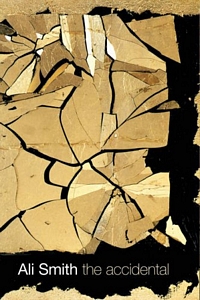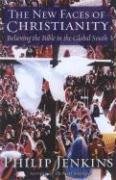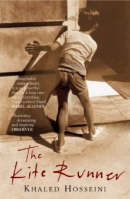Luke 2:1-20, Isaiah 9:1-7, Matthew 4:12-17He was considered the greatest king who ever lived. Many commented on his intelligence, charisma, and decisiveness. Indeed, he had done what many had failed to do - he brought peace which had long eluded the kingdom. Historians wrote about him long after he was dead, acknowledging him to be the climax of history. He was even called the "son of god". He was...Caesar Augustus.
And he was certainly a powerful man. He issues "a decree that a census should be taken of the entire Roman world", which, by the way, is pretty big. What he says is law. Augustus is a title that comes from the word
augere - "to increase", and means "exalted". He is authority personified, and here we have but one demonstration. So he is obeyed, even in the far reaches of his empire, away from the corridors of power. Joseph, no one significant, dutifully takes his bride-to-be to
balik kampung to Bethlehem, a small little village just south of the capital. There was a little drama, though, his fiance's water breaks, and she gives birth to her her firstborn in less than ideal circumstances, all told matter-of-factly by Dr. Luke, who's probably seen his fair share of births. Improvisation is needed, and the feeding-trough, for that was what the manger was, had to be used as a crib.
But in heaven there's a flurry of action over this teenage pregnancy, as the messengers of God get despatched. Why, though? King Herod would later get a little tetchy over this baby, but perhaps he was just overly insecure. After all, Herod, compared to Augustus, was just a petty governor, and Augustus hadn't even heard of this baby. So an angel gets sent to the emperor...wait, that's not what happened. Shepherds? Some special divine oracle is made privy to...shepherds? Not exactly Official Secrets Act material, this. The angel begins to clue us in. "Do not be afraid. I bring good news of great joy that will be for all the people. Today in the town of David a Savior has been born to you, he is Christ the Lord. This will be a sign to you: You will find a baby wrapped in cloths and lying in a manger."
And suddenly we begin to see what that crafty storyteller Luke was up to. What delicious irony! For Augustus thought he was in control "in those days". "In those days", at the beginning of this chapter, we see the height of the Roman empire. "In those days" it was the period known as "pax romana", or
Roman peace. But none of this will last. The Roman empire will eventually sink without trace. Meanwhile, Augustus unwittingly helps move along God's plan, and the prophecy made by Micah centuries ago is fulfilled, Christ is born in Bethlehem. Even "in those days", when Israel had seemed to be all but abandoned, God was king.
For "in those days", many of the Jews, who were the oppressed, had been looking for the Messiah. Simeon, later in the narrative, would be but one example, looking for the "consolation of Israel". But what strange circumstances for a promised deliverer to be born in. God, of course, had different ideas from everyone else. This was an undiscriminating saviour, "for all the people". Still, it's rather puzzling. The kingdom being ushered in was visibly weak, insignificant, and vulnerable. Yet the angel is clear: this is Jesus, "Christ the Lord"! The shepherds don't doubt it. Perhaps that's why the angels go to them. Maybe they had an inkling of what was to come. We will never know for sure if they remembered the prophecy in Ezekiel 34, where God himself declares that he himself will look for his sheep and look after them, rescuing them from all the places where they were scattered. But it doesn't matter. The great news is that the Shepherd-King is here, and he will lay down his life for his sheep.
Any doubt as to Jesus' identity is laid to rest at the beginning of his ministry. Jesus, having heard of John the Baptist's imprisonment, leaves Nazareth and goes to Capernaum, which is by the area of Zebulun and Naphtali. In doing so, he fulfills the prophecy of Isaiah. Matthew, one of his disciples, reminds us of why this is so important:
The people walking in darkness
have seen a great light;
on those living in the land of the shadow of death
a light has dawned.
Light has broken through the darkness! Jesus lays claim to being the Anointed One. And this king will be like no other king, he will be called Wonderful Counsellor, Mighty God, Everlasting Father, Prince of Peace. Of the increase of his government and peace there will be no other end, one in which justice and righteousness will rule, forever and ever. And the paradoxical way in which Jesus accomplishes this is by his death. A death that results in new life.
This is the message of Christmas. In a world where wars never seem to end, where heartache is everywhere, where weariness threatens to overwhelm, Jesus turns this world upside-down. The birth of Christ didn't inaugurate the kingdom of commercialism. Instead, the birth itself was the greatest gift of all, Immanuel, God with us. "Turn to me", Jesus will declare. And if we come with our hands wide open, we receive a gift just as great, if not greater. That in the midst of pain and regret, of anger and helplessness, we can turn to the King of Kings and cry, "Abba Father".
Labels: Bible reading, personal reflections
 8. The Accidental - Ali Smith
8. The Accidental - Ali Smith 7. The New Faces of Christianity: Reading the Bible in the Global South - Philip Jenkins
7. The New Faces of Christianity: Reading the Bible in the Global South - Philip Jenkins 10. The Kite Runner - Khaled Hosseini
10. The Kite Runner - Khaled Hosseini 9. Good News to the Poor - Tim Chester
9. Good News to the Poor - Tim Chester